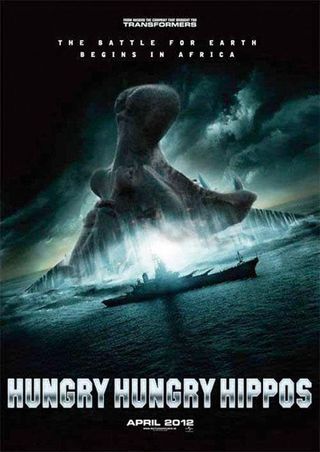
Nostalgia is big business in Tinseltown right now, but why? Film writer Daniel Bettridge weighs in with his thoughts…
If you listened carefully last month you could just about hear the collective cry of despair from despondent film fans who’d read the news about Megan Fox being cast as April O’Neil in Michael Bay’s upcoming Teenage Mutant Ninja Turtles reboot.
Fox - as you’ll no doubt remember from the Transformers franchise – has been known to turn in performances so wooden you’re likely to get splinters just by watching. Yes, fans enjoy it when she’s draped over the bonnet of a car, but she’s so far removed from the Turtles’ yellow-jumpsuited sidekick that it’s like casting Pamela Anderson in the lead role of a Delia Smith biopic (which, coincidentally, we’d probably watch).
But whilst the outrage TMNT fans were spouting in 140 characters or less was palpable, the decision to reboot the much-loved franchise itself has been greeted with more of a malevolent meh than a concerted cowabunga.

Although there's always going to be an audience who want to see the above.
It’s no surprise really. After all, in recent years we’ve become used to Hollywood cashing in on our rose-tinted nostalgia in order to entice us into the nearest multiplex. You need only look at the release of G.I. Joe: Retaliation for further evidence. The action-figure inspired sequel is just the latest cinematic salvo from Hasbro; the company who are also behind big screen toy stories like Battleship and Transformers.
It’s not just toys either. Tinseltown is now consistently turning to video games, film reboots, bedtime stories, comic books and even fairy tales in a bid to bust blocks off of the back of our treasured childhood memories.
From an industry perspective it’s easy to see the appeal. For us it’s entertainment, but for them, to paraphrase The Godfather , it’s just business. By making a film that taps into our childhood memories studios can ensure their films have an inbuilt audience, a proportion of people who are guaranteed to file into theatres no matter what. It also saves money on marketing. If we already know who the Turtles are, already care about what happens to the Autobots, or already know the premise behind Jack and the Beanstalk; then studios don’t have to spend millions shoving it down our eyeholes 20 times a day. And let’s not forget the merchandise.
At the end of the day these are the type of things that beancounters care about and who can blame them? After all, there’s a lot of financial risk involved in making a movie – just ask those investors with a John Carter shaped hole in their bank balances. So it’s understandable that they’ll do anything in their power to mitigate it.
But where does that leave the movie-going public? Surely I can’t be the only person who’s grown a little tired of taking a trip down memory lane? Yes, I was excited for the first Transformers; I was just about on board for the Turtles reboot. But the planned Monopoly movie? An impending Lego film franchise? A big screen treatment of Space Invaders that’s in the works? It’s starting to feel like they’re scraping the bottom of the nostalgia barrel isn’t it? I mean what’s next? Pop-Up Pirate 3D? A Hungry Hungry Hippos trilogy?

(Actually, that could be pretty awesome - image via AICN )
Maybe it’s time Hollywood went back to blazing a new trail instead of going over old ground. But then again whilst we continue to file into theatres to watch the movies, what’s the point?
Daniel is a freelance film writer - you can watch him throw his toys out of the pram on Twitter @danielbettridge .
